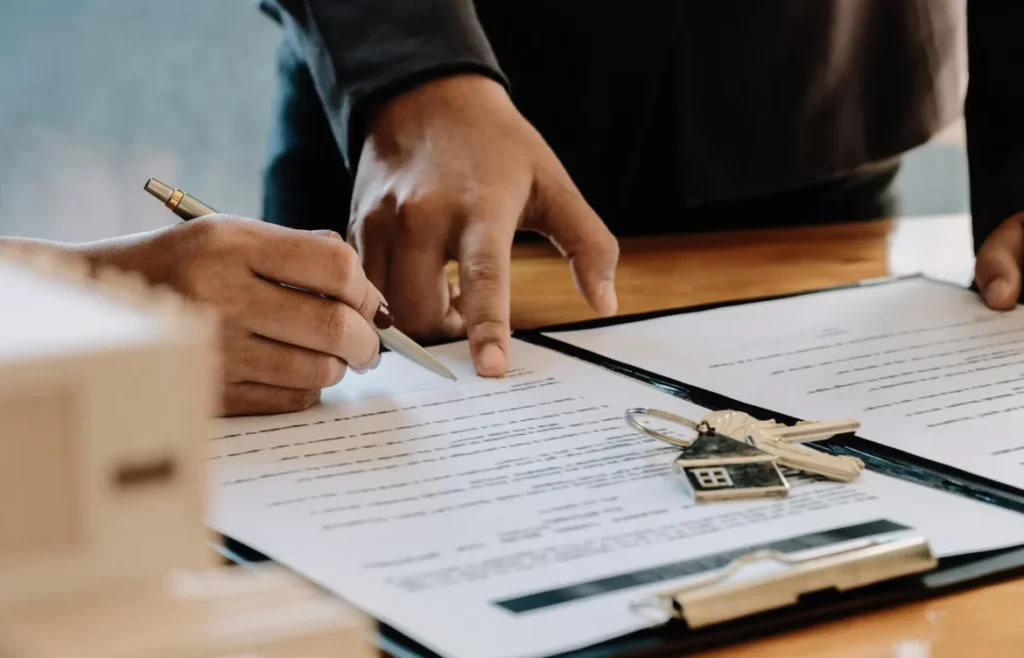
Renting a home in Dubai can be both exciting and overwhelming. Whether you’re a new expat settling into the city or a long-term resident searching for a better deal, the rental process involves several key steps that require careful attention. A small oversight — like skipping fine print or trusting verbal agreements — can cost you time, money, and peace of mind.
In this detailed guide, we’ll walk you through how to avoid the most common rental mistakes in Dubai, so you can secure your ideal property without falling into common traps.
Dubai’s rental market is diverse, fast-moving, and competitive. From luxurious villas on Palm Jumeirah to affordable apartments in Al Nahda, every area has different rental trends and landlord expectations.
The most common mistake tenants make is not researching enough before signing a lease. Rents can vary drastically even within the same community, depending on amenities, views, and proximity to transport.
Tip: Always compare prices through reliable real estate platforms or licensed agents before committing. You’ll have a clear idea of fair market value and can negotiate better.
In Dubai, working with an unregistered agent can be a costly error. Many tenants fall into the trap of trusting individuals who promise cheap deals but have no legal backing.
Only agents registered with the Dubai Land Department (DLD) and holding a valid RERA (Real Estate Regulatory Agency) license are authorized to handle property transactions. Dealing with unauthorized agents can lead to scams or disputes where you have little legal protection.
How to Avoid It:
Another common rental mistake in Dubai is signing the contract without reading every clause carefully. The tenancy contract, registered through Ejari, is a legal document that governs your rights and responsibilities.
Key details to verify include:
Many tenants sign without understanding how renewal works or who is responsible for maintenance. This can lead to disputes later, especially if something goes wrong in the property.
How to Avoid It:
Read the full contract before signing. Ask for clarifications in writing and ensure both parties sign every page of the document.
Security deposits are standard in Dubai rentals, usually equal to 5% of the annual rent for unfurnished and 10% for furnished properties. Unfortunately, some tenants hand over these payments without insisting on official receipts, only to face trouble later when retrieving them.
How to Avoid It:
Always transfer deposits via cheque or bank transfer to the landlord’s account, not the agent’s. Request a receipt clearly stating the payment purpose — whether it’s a deposit, rent, or commission.
Also, confirm the conditions under which the deposit will be refunded. Damages, late payments, or contract breaches can affect your return amount.

Ejari is a mandatory tenancy registration system introduced by Dubai Land Department. Many tenants, especially newcomers, forget to register their lease — or assume their agent has done it. Without Ejari, you can’t open utility accounts, file rental disputes, or prove your legal tenancy.
How to Avoid It:
One of the most common — and costly — rental mistakes is skipping a proper inspection before signing or moving in. A few minor issues may seem harmless at first, but they can lead to major expenses later.
What to Check During Inspection:
Tip: Take clear photos or videos during your initial visit and share them with your landlord via email. This will help avoid disputes when moving out.
Dubai landlords often prefer annual rent paid through post-dated cheques (one to four cheques per year). Some tenants agree to unfavorable payment terms without realizing the impact.
For example, offering one cheque may secure a rent discount, but it locks your money for the entire year. On the other hand, four or six cheques provide flexibility but may result in slightly higher rent.
How to Avoid It:
Negotiate a balanced payment plan that suits your cash flow. Always confirm the cheque payee name, amount, and dates before handing them over.
Dubai’s rental market is regulated by RERA’s Rent Index, which sets how much a landlord can increase rent at renewal. Many tenants accept unreasonable hikes because they don’t know their rights.
How to Avoid It:
Being informed allows you to challenge unfair rent hikes through the Dubai Rental Dispute Center if needed.
Tenants in Dubai have strong legal rights under Law No. 26 of 2007 and its amendments. Still, many renters remain unaware of them, leading to misunderstandings.
Tenant Responsibilities Include:
Landlord Responsibilities Include:
Understanding these rights helps you resolve issues professionally and legally.
Verbal agreements or WhatsApp messages are not legally binding in most cases. Many disputes arise because tenants cannot prove what was agreed upon with landlords or agents.
How to Avoid It:
Keep all communications — including repair requests, payment confirmations, and renewal notices — in writing via email. This creates a paper trail if you need to present evidence to RERA or the rental dispute center.
When your lease ends, leaving the property without proper notice or inspection can delay deposit refunds or cause deductions.
How to Avoid It:
1. Verify Ownership:
Ask for a copy of the property’s title deed to confirm that the landlord legally owns it.
2. Check Service Charges:
In some buildings, service fees for maintenance or parking are passed to tenants. Clarify this upfront.
3. Use Trusted Portals:
Stick to official real estate websites or agencies recognized by DLD to avoid fake listings.
4. Understand Early Termination:
If you plan to leave before the lease ends, clarify the penalty clause in advance.
5. Keep Digital Records:
Store soft copies of your tenancy contract, Ejari, receipts, and cheques securely online.
Dubai’s rental market rewards informed tenants. By understanding your rights, reading every document, and dealing only with licensed professionals, you can enjoy a smooth, stress-free rental experience.
Avoiding these common mistakes doesn’t just save money — it gives you peace of mind and helps you build a trustworthy relationship with your landlord or agent.

Renting in Dubai is a straightforward process once you know the rules. The city’s real estate system is designed to protect both landlords and tenants, but only if you follow the right steps.
By staying cautious, verifying every document, and keeping communication transparent, you can ensure your Dubai rental journey is both safe and satisfying. Whether you’re leasing a studio in Jumeirah Village Circle or a villa in Arabian Ranches, knowledge and diligence are your best tools to avoid unnecessary headaches.
Do Follow Estate Magazine on Instagram.
